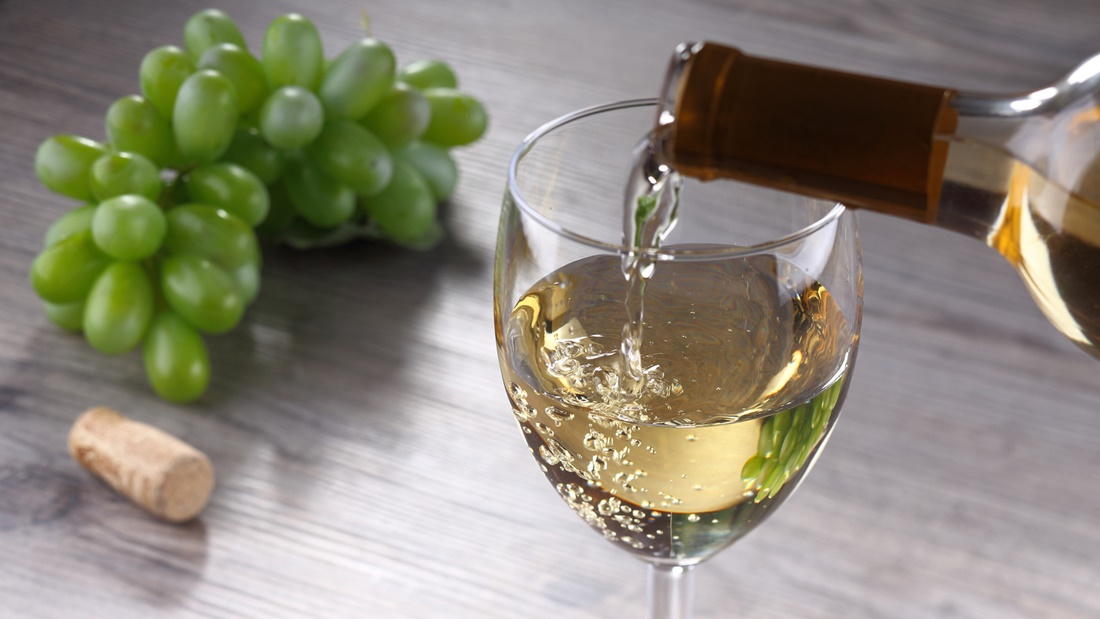
04 Sep Wonderful White Wines
Australians have developed a taste for top quality wines and Australia is fast becoming one of the worlds’ most prolific and highly awarded wine producing regions. Many renowned wine regions are culturing literally hundreds of grape varieties with many more being introduced each year. Learning a little about the types of white wine and the best regions to produce it will help narrow your search for the perfect white. With literally hundreds of grape varieties now being grown in various regions, and many more being introduced each year, the wine lover now has more choice than ever before.
Major White Grape Varieties
#1 Chardonnay
Although not becoming popular until the 1970’s, Chardonnay was first introduced in the early 1920’s. It’s planted in virtually every region and there are a wide variety of styles as a result. From light bodied, crisp and un-oaked through to full bodied, complex barrel matured versions. Premium Australian Chardonnay has evolved dramatically from the rich, ripe full flavoured versions of the late 1900’s. The sourcing of fruit from cooler climate areas has altered the original flavours. Many Australian wine regions now grow Chardonnay and depending on the environmental conditions in which it’s grown, and the ripeness of the grape, it can range from a deep tropical bouquet to quite citrus with herbaceous overtones. Chardonnay is also used in the production of many sparkling wines, and is traditionally blended with Pinot Noir and Pinot Meunier in the production of Champagne in France.
Regions: Margaret River, Yarra Valley, Adelaide Hills, Mornington Peninsula, Tasmania, Tumbarumba and Orange
#2 Riesling
With the first recorded plantings of Riesling in 1838 NSW, Australia now has a rich history of Riesling production. It was once the most planted, quality white grape variety in Australia, until the late 1980’s. Riesling goes through a number of ripening stages, making it a very flexible grape for wine making. Unripe, it has a mineral and citrus nose, moving into rose petals and green apples as it approaches the ripe stage. The ripe stage of peach and honeysuckle develops into tropical fruit and lemon butter as it develops further. The classic style of Australian Riesling is generally dry and full flavoured with typical youthful characteristics of lemon and lime zest.
Regions: Clare Valley and Eden Valley, Also Great Southern, Tasmania, Henty, Canberra District and Grampians
#3 Semillon
Semillon has a long history in Australia but is somewhat lesser known than other wines. Although made in a variety of styles, the un-oaked Hunter Valley option is arguably one of Australia’s most individual and unique white wines. Picked early to preserve natural acidity, the wine is typically fermented in stainless steel and bottled immediately. Semillon has always been at home in the Hunter Valley region of New South Wales, which has become famous for its production of fine white wines. In more recent years, this versatile grape has made its way to the Margaret River and Barossa Valley, where its young grassy and herbaceous nose moves into a peach and fig bouquet as it ripens, finally resulting in a deep honey and apricot flavour. As is the case in other parts of the world, Semillon is also blended with Sauvignon Blanc.
Regions: Hunter Valley, Margaret River and Barossa Valley
#4 Muscat
Moscato has created a worldwide enthusiasm for sweet wine and there is a considerable market for it in Australia. Modelled on the Italian classic, Australian versions are also light-bodied with 5 to 8% alcohol. Frothy and relatively sweet it can be made from any of the three major strains of Muscat. The classic, sweet fortified wines from the Rutherglen area in North Eastern Victoria are a real legacy. One of the many difference is that it may have a little skin contact during production and tend to be pale pink in colour. The wine is fortified quite early in the fermentation to preserve the natural sweetness and the grapes are picked at a very ripe stage. Older wines are blended with younger wines and the result is a wine of extraordinary richness and complexity. Unlike any other fortified wine in the world.
Regions: Rutherglen and Glenrowan
#5 Sauvignon Blanc
Sauvignon Blanc doesn’t have the same lengthy history as varieties like Shiraz or Riesling, however there is a definite market and it has found a suitable home in those regions producing a range of styles. Ideal growing conditions in New Zealand has made it a region that’s well known for quality Sauvignon Blanc. Adelaide Hills has proven to be the ultimate when it comes to varietal versions. The style tends toward ripe tropical flavours with a hint of gooseberry and subtle herbaceousness. Margaret River produces single varietal Sauvignon Blanc but the traditional style is a blend of Semillon and Sauvignon Blanc which produces wines ranging from light, sharp and citrus flavoured to a fuller flavoured tropical nose depending on barrel fermentation aging. As a wine, Sauvignon Blanc is often tart and dryer than a Chardonnay, but again, this depends on the stage of ripeness and the region in which it’s grown.
Regions: Adelaide Hills and Margaret River
#6 Verdelho
The Verdelho variety, which originated in Portugal, has found a great deal of success in Australia, especially in the Margaret River region of Western Australia and the Hunter Valley in New South Wales. Verdelho first made its way from Madeira to Australia in the 1820’s and has always done well in the hot drier areas. The Hunter Valley in NSW and the Swan District in Western Australia are known for a vibrant juicy style typically made for early consumption. As an alternative to Chardonnay, it offers a fruity and crisp palette, pairing well with a number of foods, including spicy Asian and Spanish cuisines.
Regions: Hunter Valley, Swan District and Riverina
For information about custom wine cellar design and installation, you can call Signature Cellars on 02 9340 7515 or use this contact form to get in touch with us. We’ll be pleased to assist you and provide custom solutions that match your requirements.
Thanks for reading,
Neil Smallman
Signature Cellars
02 9340 7515




No Comments